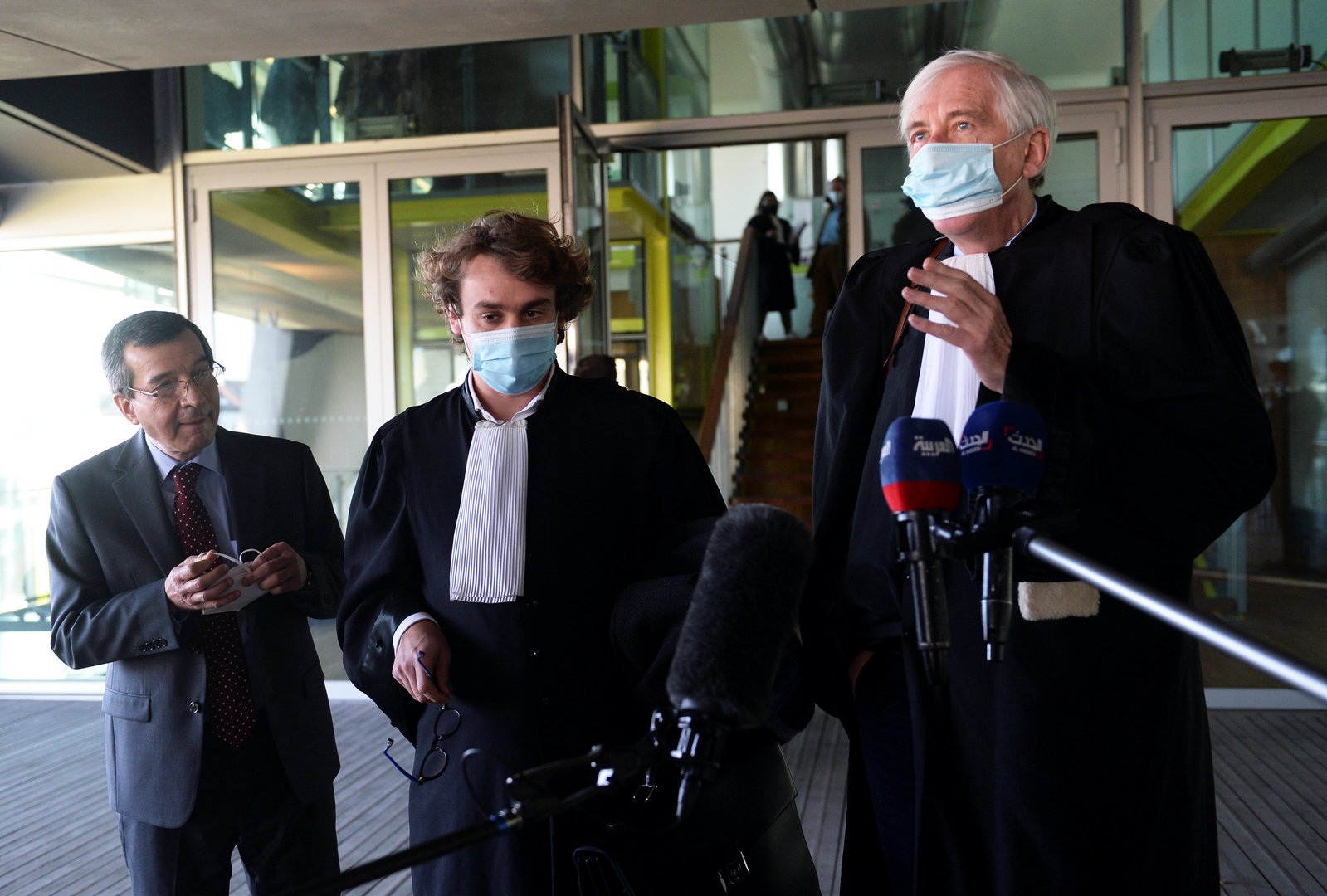An Iranian diplomat accused of planning to bomb a meeting of an exiled opposition group was sentenced to 20 years in prison on Thursday in the first trial of an Iranian official for suspected terrorism in Europe since Iran‘s 1979 revolution.
Assadolah Assadi was found guilty of attempted terrorism after a foiled plot to bomb a rally of the National Council of Resistance of Iran (NCRI) near Paris in June 2018, Belgian prosecution lawyers and civil parties to the prosecution said.
The third counsellor at Iran‘s embassy in Vienna, he was arrested in Germany before being tranfered to Belgium for trial. French officials have said he was running an Iranian state intelligence network and was acting on orders from Tehran.
He did not attend his hearings, which were held behind closed doors amid high security, and neither he, not his lawyer, have commented.
In March, he warned authorities of possible retaliation by unidentified groups if he is found guilty, according to a police document obtained by Reuters. The courtroom was heavily guarded, with armoured vehicles outside and police helicopters overhead.
A spokesman for Iran‘s Foreign Ministry told the semi-official Iranian Students News Agency on Jan. 24 that Assadi’s diplomatic immunity from prosecution had been violated and that he was a victim of a Western trap.
Prosecution lawyer Georges-Henri said outside the court in Antwerp: “The ruling shows two things: A diplomat doesn’t have immunity for criminal acts … and the responsibility of the Iranian state in what could have been carnage.”
COMMERCIAL FLIGHT
Investigators assessed that Assadi brought the explosives for the plot with him on a commercial flight to Austria from Iran, according to Belgium’s federal prosecutor.
Former U.S. president Donald Trump’s lawyer Rudy Giuliani gave the keynote address at the rally, which was attended by diplomats from many countries.
The ruling comes at a sensitive time for Western relations with Iran. New U.S. President Joe Biden is considering whether to lift economic sanctions on Iran reimposed by Trump and rejoin fellow world powers in the historic 2015 nuclear accord with the Islamic Republic.
While the European Union has imposed human rights sanctions on Iranian individuals, Brussels has sought closer diplomatic and business ties with Tehran.
But it says it cannot turn a blind eye to terrorism, including the two killings in the Netherlands and a failed assassination attempt in Denmark, blamed on Iran.
“It’s an historic day, it’s a day of justice,” said Rik Vanreusel, a lawyer for one of the civil parties. “We can be proud of brave little Belgium, who decided not to just expel diplomats but to prosecute, imprison and condemn heinous international acts of terrorism,” he told reporters.
Three other Iranians were sentenced in the trial for their role as accomplices, with 15-, 17- and 18-year sentences handed down respectively by three judges who did not comment on Thursday. One of their lawyers said he would recommend an appeal, although it was not clear if Assadi would do so.
“It was established that the Iranian regime uses terrorism as statecraft and the highest levels of the Iranian regime are involved,” Shahin Gobadi, a Paris-based spokesman for the opposition People’s Mojahedin Organization of Iran, which is part of the NCRI, said outside the court.
The Islamic Republic has repeatedly dismissed the charges, calling the attack allegations a “false flag” stunt by the NCRI, which it considers a terrorist group.







Click here to change your cookie preferences